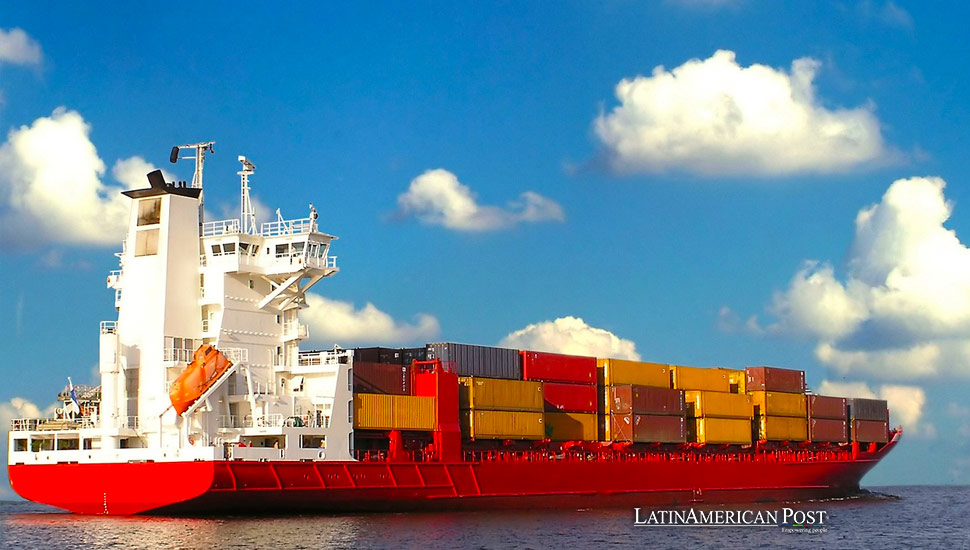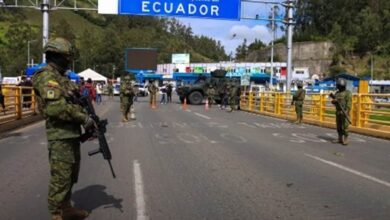Canada and Ecuador Move Forward with Bilateral Trade Agreement Talks

Canada and Ecuador have commenced their second round of negotiations for a bilateral trade agreement. The negotiations focus on intellectual property, competition policy, and investments, while environmental and indigenous groups oppose them.
The governments of Canada and Ecuador embarked on their second round of negotiations on Monday to solidify a bilateral trade agreement. This round, conducted via videoconferences, is scheduled to run until June 18. As outlined by Ecuador’s Ministry of Production, Foreign Trade, Investments, and Fisheries, the discussions aim to tackle key issues, including intellectual property rights, competition policy, and investments. These negotiations hold the promise of fostering economic growth, job creation, and technological innovation for both nations.
The initial round of negotiations took place from April 29 to May 8. Since then, technical teams from both countries have held multiple meetings to advance the discussions and analyze the texts of various disciplines. During a workshop last week, Ecuador’s Minister of Production, Foreign Trade, Investments, and Fisheries, Sonsoles García, highlighted the significant potential benefits of the free trade agreement (FTA), emphasizing that the document will include a chapter dedicated to Indigenous peoples and nationalities.
This FTA represents a significant step in Ecuador’s quest to expand trade ties and attract foreign investments. Importantly, it includes specific provisions for Indigenous communities, demonstrating a commitment to addressing social and cultural impacts alongside economic interests. This commitment ensures that the voices and concerns of all stakeholders are heard and respected.
Latin America has seen a surge in trade agreements over the past few decades, reflecting a shift towards greater economic integration and globalization. Countries in the region have sought to diversify their trading partners and reduce dependence on traditional markets like the United States. This trend is evident in agreements such as the Pacific Alliance, which comprises Chile, Colombia, Mexico, and Peru, and Mercosur, which involves Argentina, Brazil, Paraguay, and Uruguay.
Ecuador’s engagement in trade negotiations with Canada is part of this broader strategy. Historically, Ecuador has relied heavily on oil, bananas, and shrimp exports. Diversifying its export base and securing stable, long-term trade agreements are crucial for the country’s economic resilience and growth.
The Negotiation Agenda
The current round of negotiations focuses on several critical areas:
Intellectual Property (IP): Protecting IP rights is a cornerstone of modern trade agreements. For Ecuador, enhancing IP protection can foster innovation and attract technology-driven investments. For Canada, ensuring robust IP standards helps protect its businesses operating abroad.
Competition Policy: Establishing fair competition practices is essential to prevent monopolies and ensure a level playing field for all businesses. This aspect of the negotiations aims to create transparent and fair market conditions.
Investment Policy: Encouraging foreign investment is a crucial objective for Ecuador. By agreeing on clear and stable investment rules, the country hopes to attract more Canadian investments, particularly in the mining, agriculture, and technology sectors.
Opposition from Environmental and Indigenous Groups
Despite the potential economic benefits, the negotiations face significant opposition from environmental and indigenous groups in Ecuador. The increase in Canadian mining investments, supported by the Ecuadorian government, has raised concerns about environmental degradation and the infringement of indigenous rights. These groups argue that the FTA could lead to further exploitation of natural resources and threaten their way of life.
In recent weeks, protests have intensified, with activists calling for more excellent protection and consultations with affected communities. These tensions were exacerbated by President Daniel Noboa’s participation in the Prospectors & Developers Association of Canada (PDAC) conference in Toronto, the world’s largest mining industry gathering.
Latin America has a long history of conflicts between development projects and indigenous communities. From the Amazon rainforest to the Andean highlands, indigenous peoples have often found themselves at odds with government policies favoring resource extraction.
Ecuador is no exception. The country’s diverse indigenous population has frequently clashed with authorities over land rights and environmental preservation. Notable conflicts include protests against oil extraction in the Amazon and opposition to large-scale mining projects in the Andes.
These historical tensions underscore the importance of incorporating robust safeguards and inclusive dialogue into trade agreements. Ensuring that the voices of indigenous communities are heard and respected is crucial for achieving sustainable and equitable development.
Balancing Economic and Social Interests
Ecuador and Canada’s challenge is balancing economic ambitions with social and environmental responsibilities. While the FTA promises economic growth and job creation, it must also address the legitimate concerns of those potentially impacted by increased industrial activities.
Incorporating comprehensive environmental protections and stringent regulatory frameworks can help mitigate negative impacts. Additionally, establishing ongoing dialogue and dispute-resolution mechanisms between the government, investors, and Indigenous communities is essential for maintaining social harmony and trust.
As negotiations progress, both countries must navigate these complex issues carefully. The success of the FTA will depend on its ability to reconcile economic objectives with social and environmental priorities. This agreement represents more than just a trade deal. It’s an opportunity for Ecuador to strengthen its economy, diversify its export base, and enhance its international trade relations. For Canada, it offers a chance to expand its presence in Latin America, a region of growing strategic importance.
The second round of trade negotiations between Canada and Ecuador marks a pivotal moment in their bilateral relations. Focusing on intellectual property, competition policy, and investments, the discussions aim to lay the groundwork for a comprehensive trade agreement. However, opposition from environmental and indigenous groups highlights the need for a balanced approach that addresses economic, social, and environmental concerns.
Also read: Exploring the Richness of Volcanism: Ecuador and Canary Islands Under the Lens
As Latin America continues to integrate into the global economy, trade agreements like this will play a crucial role in shaping the region’s future. By prioritizing inclusivity and sustainability, Canada and Ecuador can set a positive example for how trade can drive growth while respecting cultural and environmental heritage.




